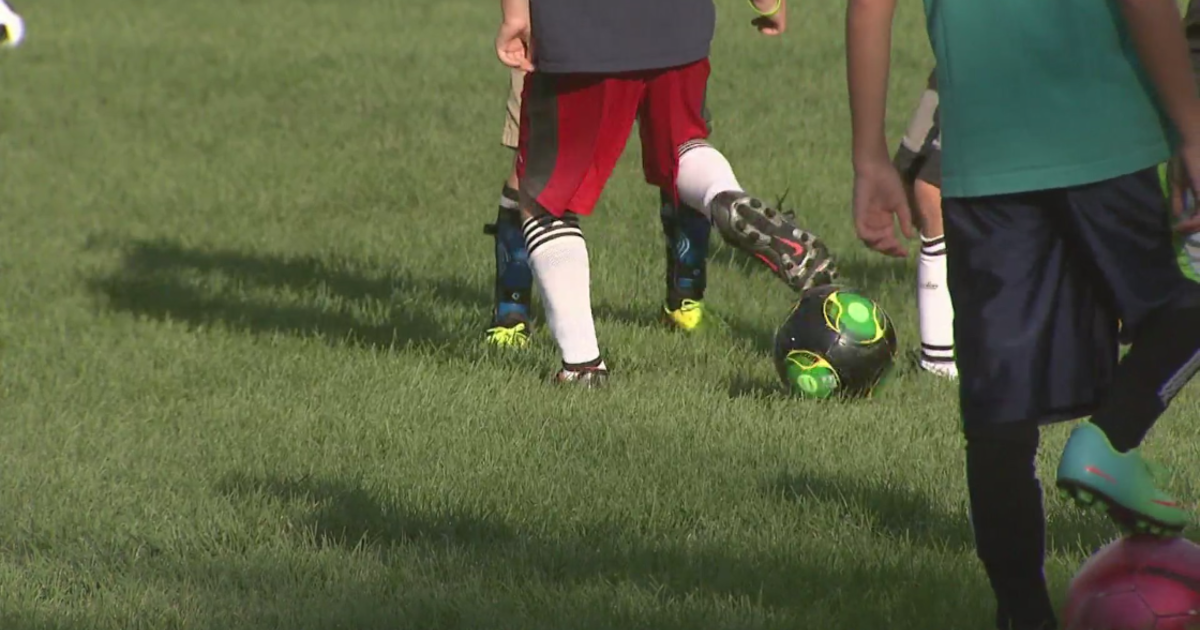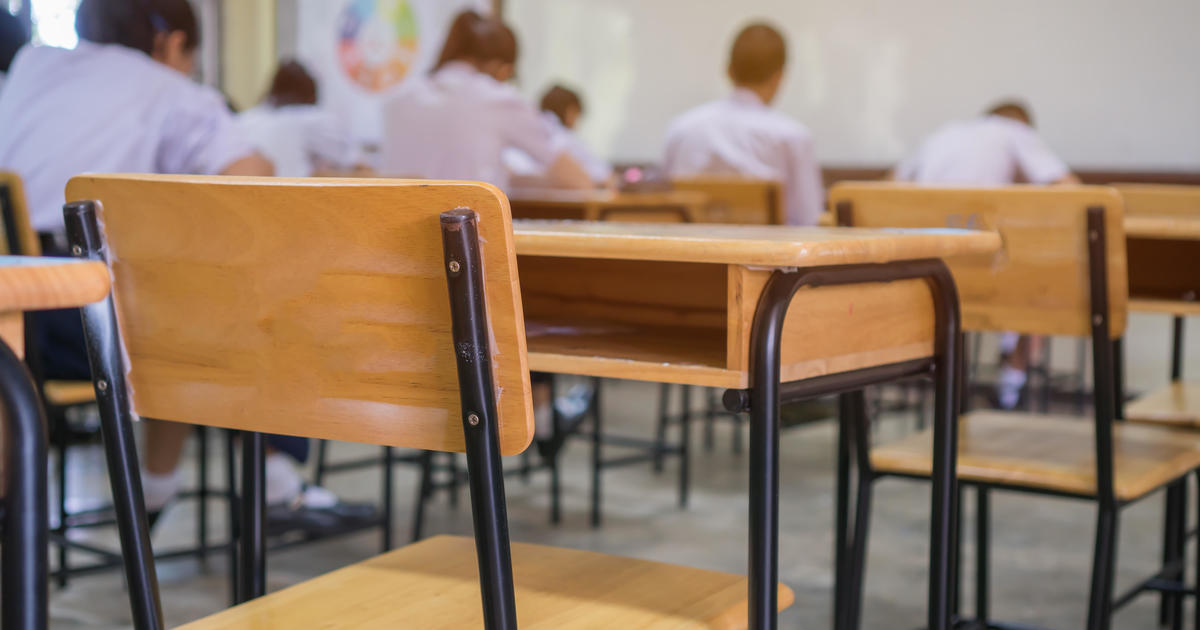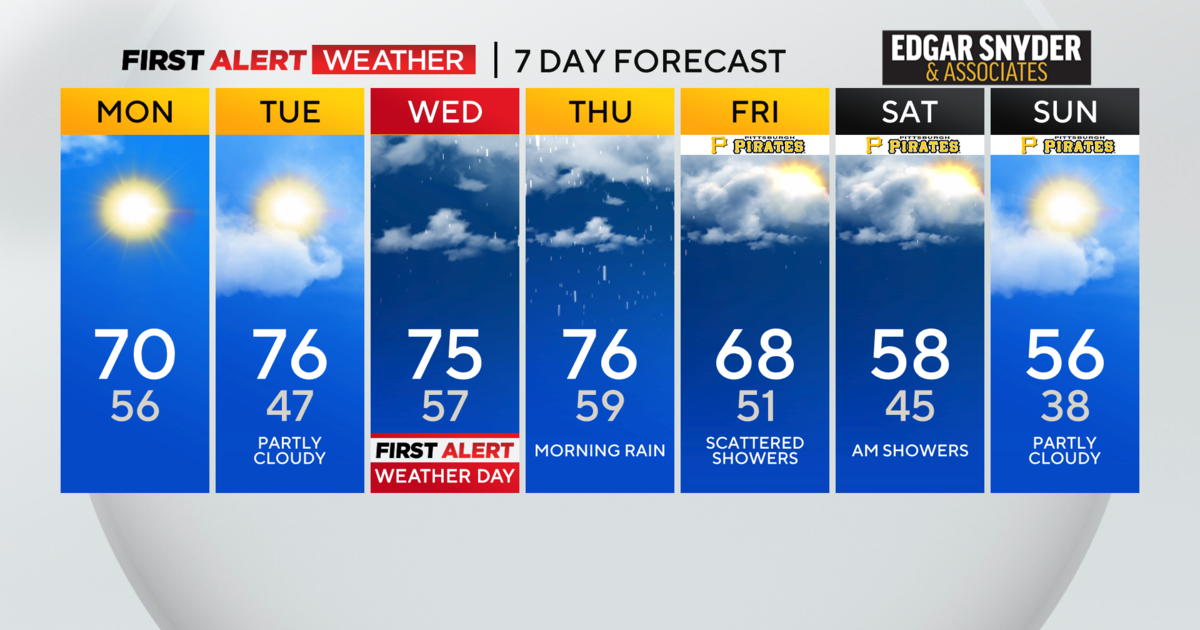Study Shows Later Start Time For Teens Improves Their Performance
PITTSBURGH (NewsRadio 1020 KDKA) - The Academy of Pediatrics recently reported that a later start time for middle school and high school students will increase academic scores and decrease sleep deprivation. They recommend starting their school day at 8:30am.
Dr. Peter Franzen is an Assistant Professor of Psychiatry at the University of Pittsburgh School of Medicine and Dr. Meryl Butters is an Associate Professor of Psychiatry at the University of Pittsburgh School of Medicine. The two doctors discussed this proposal with KDKA Radio's Mike Pintek. Dr. Butters has a high school student herself and started this fight two-years ago when the Pittsburgh Public Schools moved their start time to 7:29am.
The school district responded to Dr. Butters questions of starting earlier as a "cost saving measure" when they decided to stop paying to Port Authority Transportation passes. Their high school students used to receive a free bus pass to use public transportation to take them to and from school. Now, all public school students use yellow buses so they needed to add an hour onto the bus schedule and that was for the high school at 7:00am.
Dr. Butters recommends that the elementary students start earlier because their biological clock allows them to go to bed earlier. Dr. Franzen stresses that teenagers do not choose to go to bed later, and it's not just "kids being kids." There is a real biological change happening in their bodies that doesn't allow them to fall asleep as easily.
Dr. Peter Franzen and Dr. Meryl Butters
"I think this is the smart thing to do, send the kids who are ready biologically to start learning at the earlier time the younger kids," said Dr. Franzen. "One of the major objections to that is that they don't want to send young kids to school in the dark and that's an appreciable concern though there's no reason why little kids are any safer than older kids, it's dangerous for kids to be in the dark period."
Biologically Dr. Franzen continues that as adolescents develop through puberty changes occur and sleep becomes lighter as their biological clock changes. He describes how melatonin that's released in the brain is delayed during puberty casing the teen to fall asleep later than when they lay down to go to sleep. This delays their biological night to begin causing them to start school while their bodies are still in a state of sleep.
He adds that there is also a social environmental change that's happening to teenagers. There is less parental control to force a teenager to lay in bed, they find themselves wanting to socialize more causing their brains to be more active later into the night. Those two factors are working together to rob teenagers of sleep.
The doctors explain that experts have stated children need about 8.5 to 9 hours of sleep a night and that includes elementary school children. However the difference is younger children have a biological clock that allows them to fall asleep earlier. They continue that the better a child sleeps the better they will perform in all aspects.
Dr. Franzen continues that sleep deprivation has adverse affects of a teenager such as worse academic scores and increased sleepiness. He referenced a report that concluded 20-30% of students reported falling asleep in school. The National Highway Traffic Safety Administration reported 100,000 accidents each year were caused by drowsy drivers and 50% of those accidents were caused by teenagers.
Dr. Butters adds that with the lack of proper sleep there is an increase in risk taking behaviors, depression, anxiety, and substance abuse in and outside of school. She reveals that this effect is worsened in urban students and ethnic minorities who are already at a greater risk, but lack of sleep causes that possibility to increase.
In the mid-90's communities began the change of later school start times and have been able to work through the complex changes altering their entire community. Dr. Franzen concludes that he has seen numerous studies showing the positives of the later start time and to his knowledge this is no study that shows the positives of an early start time for high school and middle school students.
Dr. Kevin Wong, a family doctor in the Harrison City, Jeanette area and former President of the Pennsylvania Academy of Family Physicians, joined the "KDKA Morning News" with Larry Richert and John Shumway to add more insight.
He agrees that biologically, middle and high school students' brains are still developing and that their sleep cycles are different. So, sending your student to bed early isn't necessarily a solution.
"They're not ready go to sleep and we're trying to force them to do something their body is not physically ready to do," Dr. Wong said.
Dr. Wong said, "it would be too difficult" to change school starting times, but suggests maybe pushing test times to later in the day. He also said engaging in physical activity early would help kids be able to focus better.
Podcast
You May Also Be Interested In These Latest Stories From NewsRadio 1020 KDKA
Like NewsRadio 1020 KDKA On Facebook
Follow NewsRadio 1020 KDKA On Twitter



